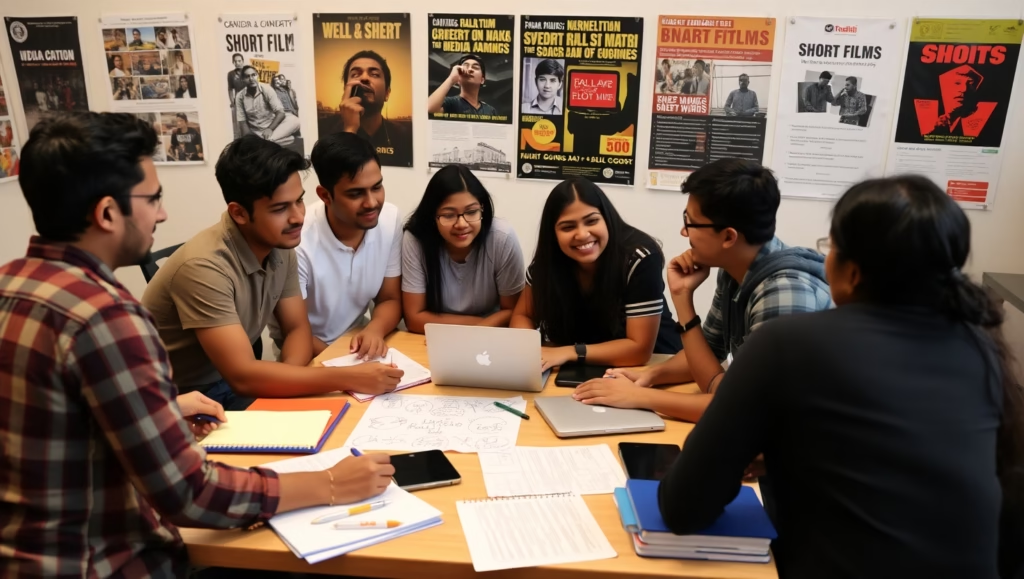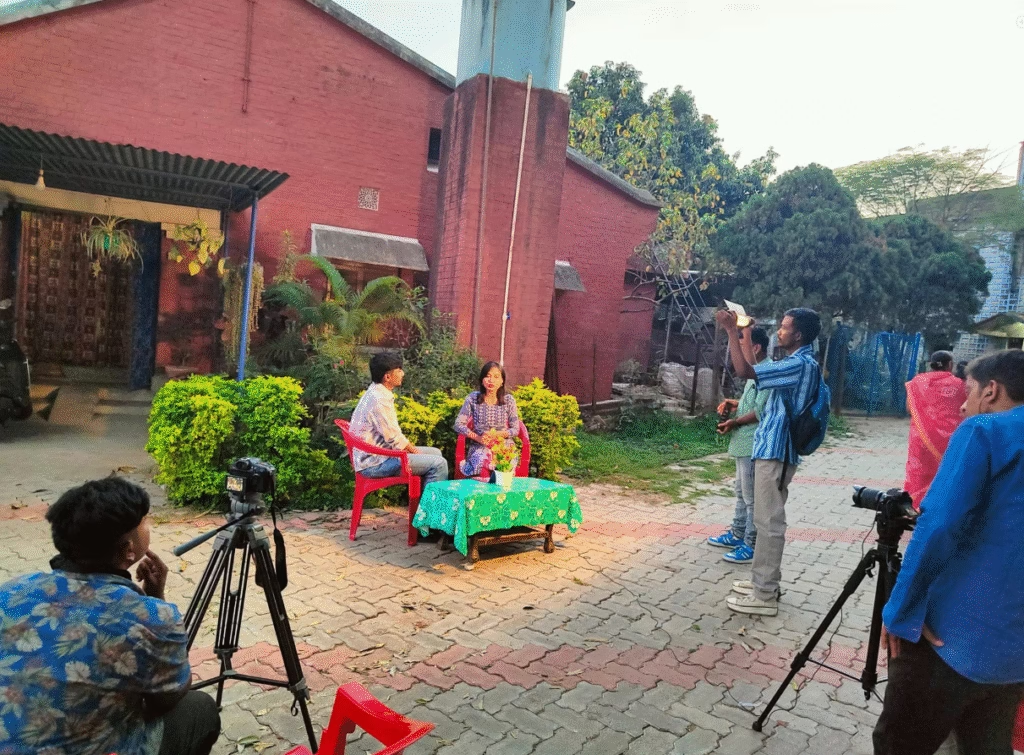Top Skills Every Mass Communication Student Must Learn
At Gossner College, Ranchi, the Department of Mass Communication and Video Production believes in preparing students not just with academic knowledge but with real-world skills that shape future-ready media professionals. With the media industry rapidly evolving, mastering key practical and creative skills is essential for success in journalism, filmmaking, advertising, and digital content creation.
Here’s a detailed look at the top skills every Mass Communication student at Gossner College must develop during their academic journey.
1. Effective Communication Skills
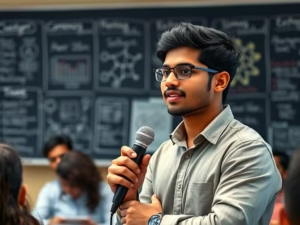
Our curriculum places a strong emphasis on both verbal and written communication.
Students regularly participate in debates, scriptwriting workshops, news reporting assignments, and classroom presentations.
These activities build the confidence needed for careers in journalism, anchoring, PR, and corporate communication.
2. Camera Operation & Cinematography
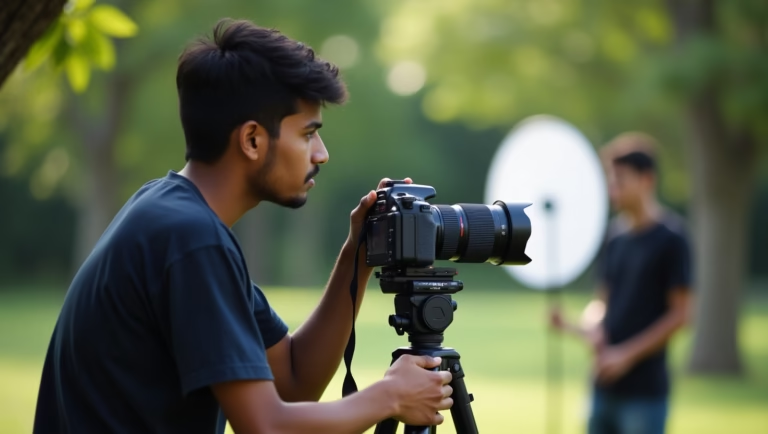
Gossner students gain hands-on training in DSLR and video camera operation during studio sessions and outdoor field assignments.
We teach students to frame shots, use lighting effectively, and understand camera movement to tell powerful visual stories.
Cinematography basics are covered as part of short film and documentary production coursework.
3. Video Editing and Post-Production Skills
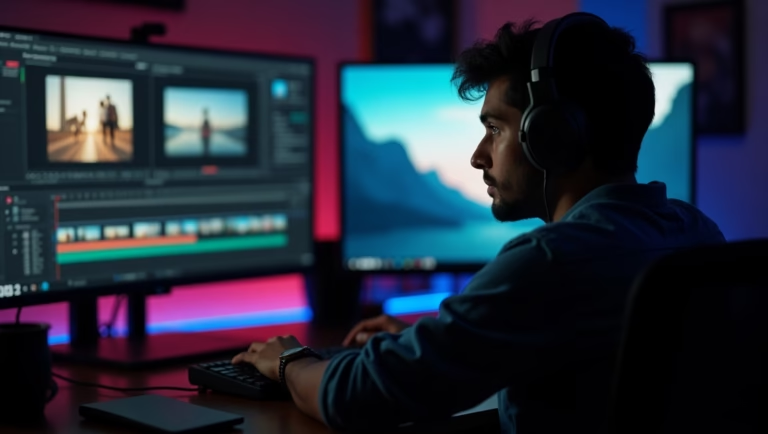
Students at our department are introduced to industry-standard software like Adobe Premiere Pro and DaVinci Resolve.
Through assignments and group projects, students learn how to cut, pace, and polish footage for news packages, music videos, and short films.
Editing labs are frequently conducted with practical assignments to sharpen technical proficiency.
4. Scriptwriting and Storyboarding
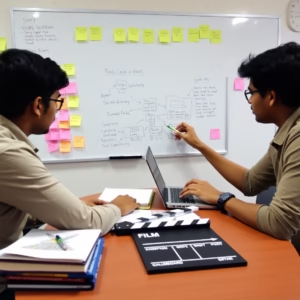
Every media project begins with a script—and we train our students to write compelling narratives.
From writing news bulletins to fiction scripts, students learn different formats and genres.
Faculty members mentor students in storyboarding, helping them visualize their scripts frame-by-frame before production begins.
5. Media Research and Ethics

Our department encourages students to think critically and work responsibly.
Courses on media law, research methodology, and journalistic ethics ensure that students are aware of their social responsibilities.
Assignments include field research, surveys, and fact-checking exercises to build investigative skills.
6. Social Media and Digital Tools
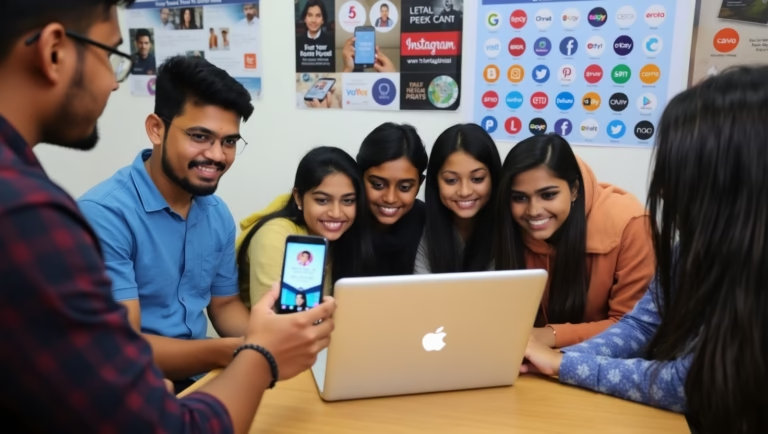
We prepare students for the digital-first world with training in social media content creation and strategy.
Students manage social media pages, learn content scheduling, caption writing, hashtag research, and basic SEO techniques.
They also learn to use tools like Canva, Buffer, and Meta Business Suite to create and manage campaigns.
7. Public Speaking and On-Camera Confidence
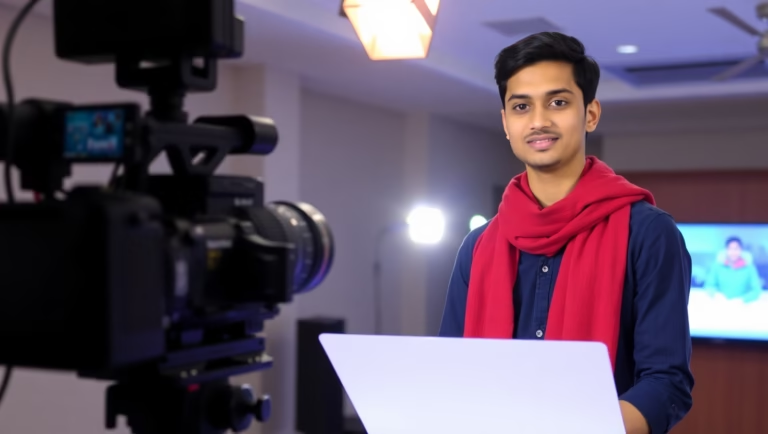
Whether it’s hosting college fests, presenting on-camera, or moderating discussions, students are constantly encouraged to speak with clarity and confidence.
At Gossner College, students regularly practice anchoring, interviewing, and presenting in front of the camera. These activities build confidence and prepare them for careers in broadcast journalism, corporate communication, and hosting live or recorded shows. The college provides camera setups, teleprompters, and mock studio environments for practical learning.
8. Teamwork and Project Management
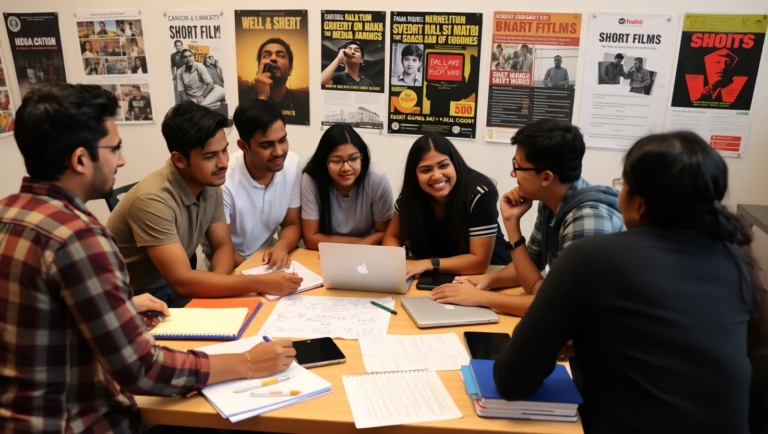
Media production is collaborative. At Gossner, students work in production teams for short films, news shows, event coverage, and workshops.
Media production is rarely a solo task. Students at Gossner College collaborate on short films, news packages, documentaries, and festival events—learning how to delegate tasks, meet deadlines, and communicate effectively as a team. This experience prepares them for real-world media environments where teamwork is essential.
9. Creative Thinking and Visual Innovation
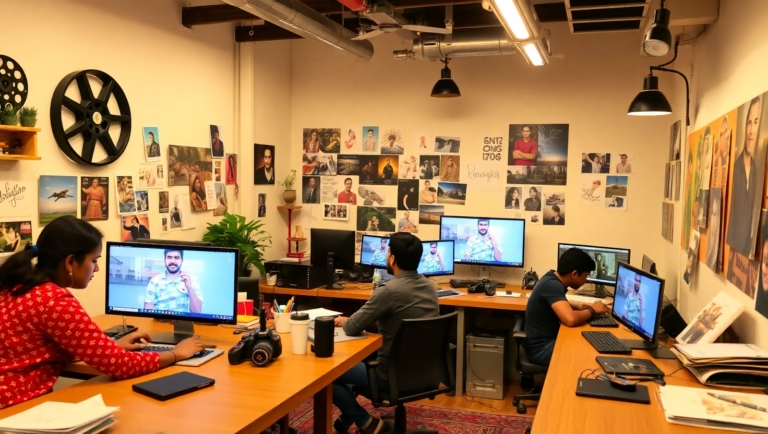
We nurture creativity through regular exposure to films, documentaries, ad campaigns, and storytelling competitions.
Innovation is at the heart of media. Gossner College encourages students to experiment with storytelling, design, and multimedia. Whether it’s designing campaign posters, conceptualizing ad films, or experimenting with visual effects—students are given the freedom to express their creativity and originality.
10. Networking and Industry Exposure
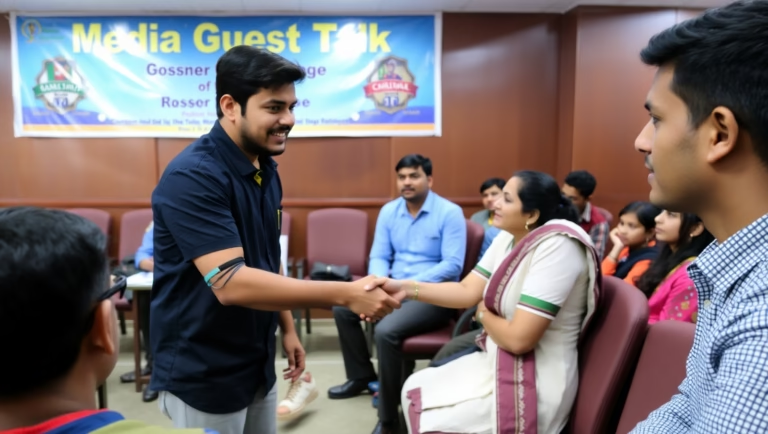
Our department regularly connects students with media professionals, guest lecturers, alumni, and field experts.
The department regularly hosts guest lectures, alumni meetups, film screenings, and workshops to connect students with media professionals. These events help students understand industry expectations, find mentors, and explore internship opportunities. This real-world exposure adds great value beyond classroom learning.
Final Thoughts
At Gossner College, Ranchi, our Department of Mass Communication and Video Production is committed to developing not just skilled graduates, but confident, ethical, and creative media professionals.
By building these top skills, students are well-equipped to thrive in journalism, filmmaking, advertising, content creation, and beyond.

